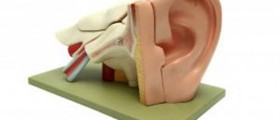
Peppermint is traditionally used to treat digestive problems, stomach pain, cramps, delays in digestion and flatulence.
Essential peppermint oil is a pleasant, refreshing fragrance. It speeds up metabolism, regulates digestion and it is recommended for the travel sickness. Peppermint oil eases cold symptoms, viral infections, respiratory inflammations, eases breathing, alleviate rheumatism and pain in muscles and joints, and helps oily skin care.Essential mint oil has an relaxing effect on the stomach and intestines, reducing spasms, nausea, eliminates straining, pain and the emergence of excess air. Peppermint regulates digestion, stimulates bile secretion, secretion of gastric juices and reduces stomach tension. Even better effects are achieved in a combination with caraway, fennel, chamomile, anise and cinnamon. The Commission E approved the use of mint for cramps in the digestive tract. A survey confirms that peppermint strongly influences on the reduction of colic and equal volume of intestinal movement - regulates peristalsis. Peppermint oil indirectly affects the normalization of liver and bile function. It is used to reduce painful cramps in middle colic gall bladder.
Mint oil is a good choice for irritable bowel syndrome, caused by psychological factors. Peppermint oil is successfully applied for treating anxiety, neuroses and insomnia. It acts calming and refreshing, giving back strength. Peppermint affect the regulation of rapid heart rate, relaxes bronchi and eases symptoms of asthma. Along with the balm, peppermint uses for relieving nausea in pregnant women. Mint helps in fight against an unpleasant breath, gum and tooth diseases, in the form of solution for mouth rinsing.
Menthol, one of the components of mint oil, locally applied reduces the pain and cools, leading to numbness, and is used in various rheumatic problems and neuralgia. It was confirmed as a tool for reducing receptors sensitivity to pain. Menthol is therefore widely used in making antirheumatic oils, creams and gels. Essential mint oil is also used for inhalation. Researches have confirmed antiviral and antibacterial effects of essential mint oil and menthol effect against some types of fungi.
How to use peppermint oil?
Peppermint oil is approximately used in the amount of 6-12 drops for internal use or 3-4 drops as an inhaler.When not to use peppermint oil?
Peppermint shouldn’t be used in children younger than 5. For stomach problems it is better to use the chamomile or fennel tea. Using mint oil is not recommended for pregnant women in the first 4 month of pregnancy.Side effects
If peppermint oil is used in excessive amount, there may be a manifestation of side effects such as heartburn, nausea, vomiting, allergic reactions. In applying essential mint oil to the sensitive skin may appear contact dermatitis.
















Your thoughts on this
Loading...